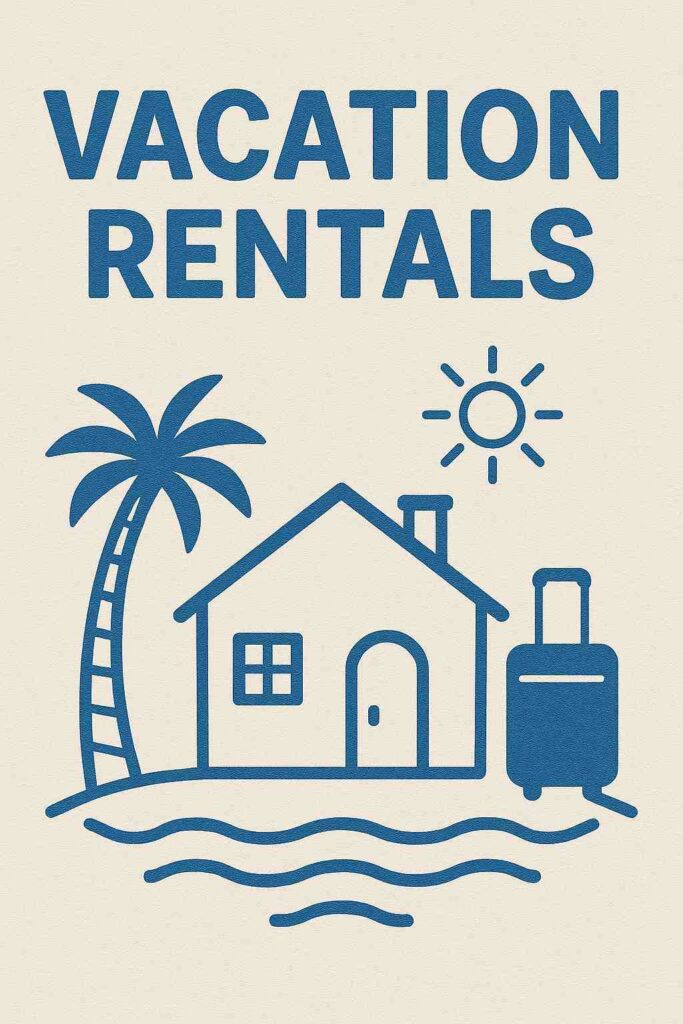Investing in vacation rentals will help you to be compensated even while you are away
Imagine this: Your wise vacation rental investment is helping your financial account grow as you relax on a beach sipping margaritas. Sounds like a fantasy? It need not be. If you know what you’re doing, investing in vacation rental properties can be extremely successful.
But first, let’s discuss reality before you start looking at oceanfront condos. This is not only about purchasing a nice cabin and hoping for the money to come in. Investing in vacation rentals calls for some effort, planning, and study. Here is how to accomplish it correctly—without going bankrupt.

Location, Location, Location (No, Actually)
The golden rule of holiday rentals? You’re purchasing the location, not only a property. A beautiful home in the middle of nowhere won’t book like a simple condo close to beaches or ski lifts. The best markets for vacation rentals have three things: year-round appeal, visitor demand, and strong local rules (because nothing destroys earnings faster than an unexpected Airbnb ban).
Consider underappreciated cities with major events, seaside destinations, or alpine communities. Before you buy, check websites like AirDNA or Mashvisor to find where demand is rising.
Do the maths; otherwise, things can turn ugly.
This is where fresh investors stumble. Though the mortgage, taxes, insurance, and upkeep consume all your rental revenue, that lovely cottage may seem like a jackpot but you are only working for free.
A good vacation rental ROI calculator should include:
Operating expenses plus mortgage: property management, utilities, housekeeping. Seasonal occupancy rates (that ski chalet won’t book much in July). Local rivalry: Are 50 identical Airbnbs down the street? Keep searching if the figures don’t indicate at least 10-15% yearly return.
How to Purchase Without Going Bankrupt
The good news is that starting out doesn’t require you to be a cash-flush entrepreneur. Many investors fund holiday rentals via conventional mortgages, portfolio loans, or perhaps HELOCs (home equity lines of credit). However, be warned: many lenders want 20-30% down for investment properties and interest rates are more than primary homes.
You could get better financing conditions if you house hacking (living in the property part-time). Just don’t inform the bank you’re operating an Airbnb; certain lenders become anxious about short-term rentals.
Airbnb or Long-Term Rentals: Which Wins?
Though they bring problems, short-term rentals—Airbnb, VRBO—can generate 2-3x more revenue than conventional leases. Consider ongoing turnover, furniture expenses, and demanding visitors unable to grasp the Wi-Fi at two in the morning.
Rentals for long term? More consistent income, less drama, but smaller returns. The ideal location? For remote workers or travelling nurses, mid-term rentals—1-6 month leases. Fewer 5-star reviews asking refunds since “the ocean was too loud,” more stable income, and less turnover.
The Unspoken Hidden Costs
That 200K cabin isn’t actually 200K. Include in:
Furnishing (no, your college futon won’t do) . Property management charges—unless you wish to play handyman from afar. Marketing expenses—professional photographs pay for themselves. Unforeseen repairs (because visitors will damage items). Plan at least 20% more for unanticipated events.
Well… Is a vacation rental really worth it?
Absolutely, if you choose the correct location, calculate the figures, and don’t mind having landlord responsibilities (or outsource them). The best investors run it like a business, not a hobby.
But what if all you want is passive money with no work? Stick with index funds. Vacation rentals are not passive, so they pay well.
Still here? Then do your study, run the figures, and perhaps—just perhaps—you will be the one drinking margaritas as your rental covers the expenses.